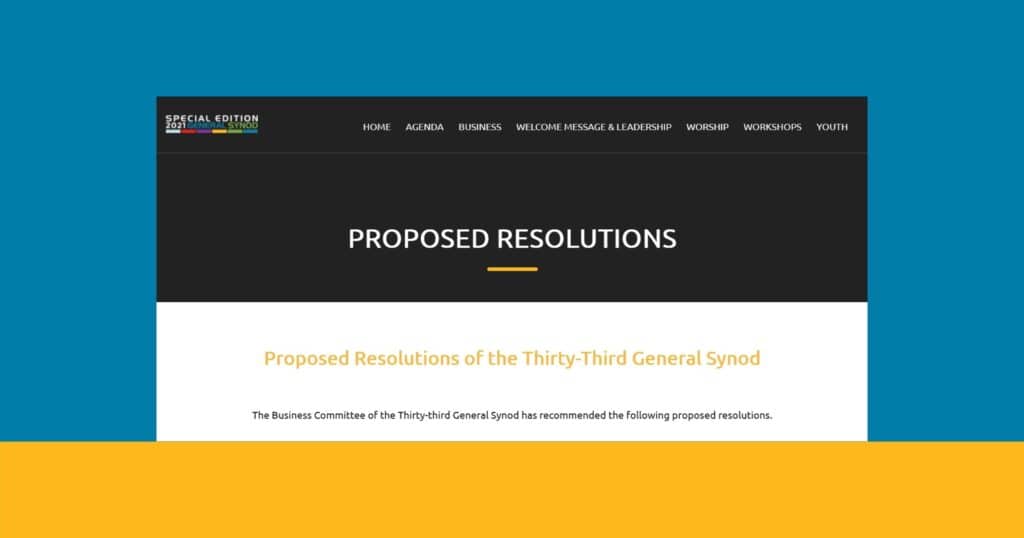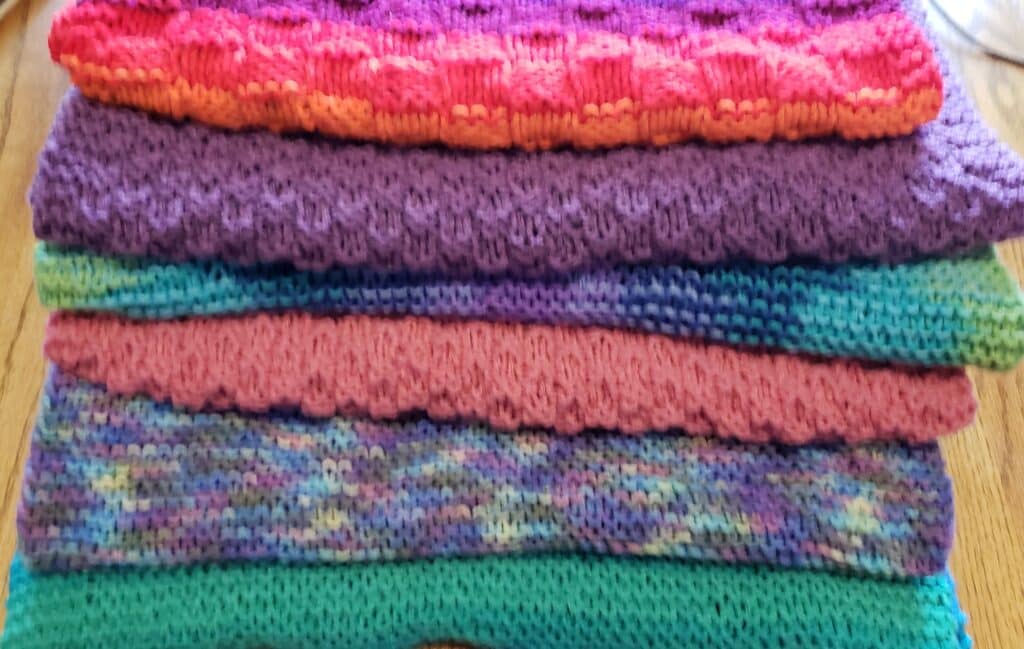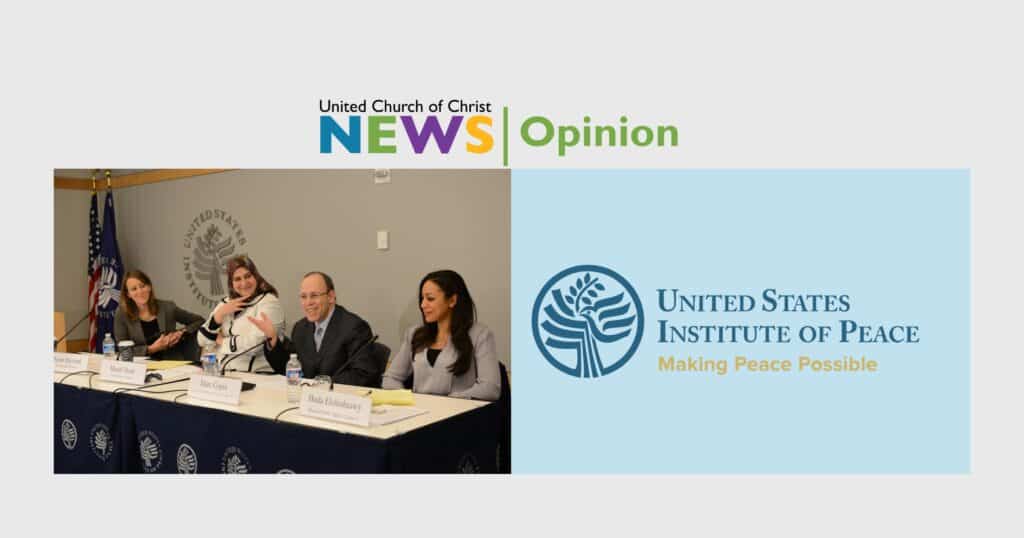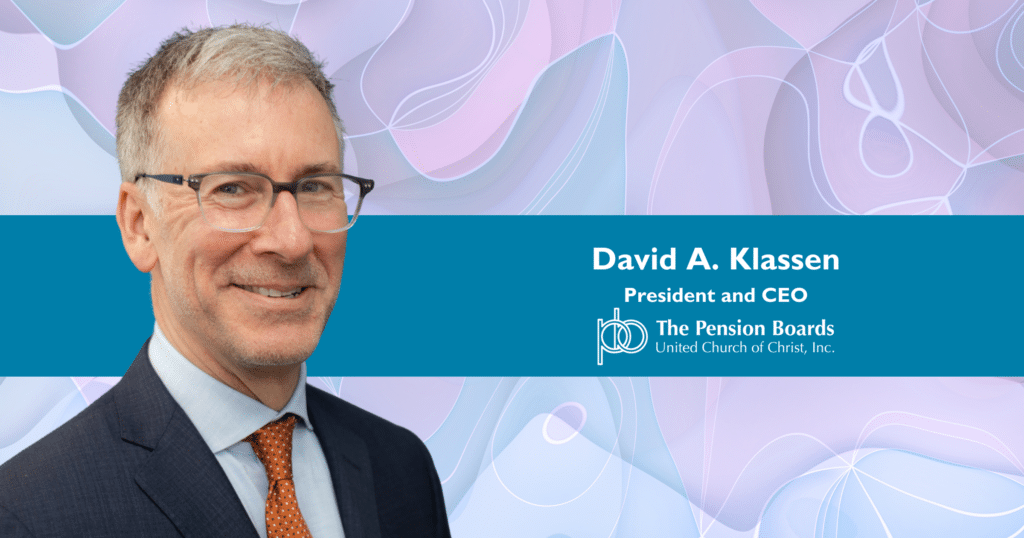Synod eyes resolutions, bylaw changes, from the internal to the global
Delegates to the United Church of Christ’s General Synod this summer will have a wide variety of subjects to consider. Among them:
- A just peace for Palestine and Israel.
- Bail bond reform.
- Safety for women, trans and nonbinary people in settings of ministry.
- Nature’s rights, and whether they’re on par with human rights.
- An end to Robert’s Rules of Order as the way Synod meetings must be governed.
Those are just a few of the topics of 11 resolutions and several UCC Bylaws changes that delegates will vote on July 11-18. All are now posted at the event’s website.

Paths they’ll take
Churches, Conferences and groups across the UCC submitted resolutions by Jan. 2. The UCC Board reviewed them at its March meeting. It recommended:
- That three go directly to a plenary session of the Synod.
- That seven go first to a committee of delegates, then to plenary. Committees will start meeting July 15.
- That one go directly to the United Church of Christ Board for consideration.
Each resolution’s “disposition” — that is, which path it will take — appears in a chart in the business section of the Synod website.
That section of the site also has the complete text of each resolution.
Going to committees
Among those going to committees, six are “resolutions of witness.” Those will each need a vote of two-thirds of the Synod delegates — in a plenary session — to succeed. The seventh in the list below is a “prudential resolution.” It requires only a simple majority in plenary.
They would, if passed, put the Synod on record as:
Regarding Earth “not as an ‘it’ but as a ‘thou.’”
From a proposed General Synod resolution that a committee will consider
- Calling for changes in the cash bail bond system in the United States.
- Seeking an end to the practice of “conversion therapy” upon LGBTQ people.
- Confessing that women and nonbinary persons experience “bias, discrimination and violence” in the church and urging safety, empowerment and equity for them in all settings of ministry.
- Asking federal and state governments to “begin to comply with international humanitarian law in [their] prolonged and illegal occupation of the Hawaiian Islands.”
- Adopting a “declaration” that spells out “the principles that must be in place and honored in any future just and peaceful relationship between Israel and Palestine.”
- Declaring that Earth — “not as an ‘it’ but as a ‘thou'” — has certain rights, and that these supersede the rights humans think they have to do things that are “harmful and destructive” to the environment.
- Granting the UCC’s Alliance of Associate Conference Ministers status as a “Self-Created Group” per Article VI of the UCC Bylaws. Eight such groups exist now.
To plenary or Board
Calling on the church “to declare and respond to racism as a public health crisis.”
From a proposed resolution that will go directly to a General Synod plenary session for consideration
The three headed straight to plenary are all resolutions of witness. They propose that the Synod:
- Urge local churches — and provide resources for all settings — to become “contemplatives in action,” basing activism on “a life of foundational spiritual practices.”
- “Declare and respond to racism as a public health crisis,” and call on the UCC’s national ministries to “enable and encourage” local churches to act on it in various ways.
- Recognize the United Nations International Decade for People of African Descent (2015-2024) and “adopt its frameworks for addressing issues affecting African descendant people.”
Lastly, the one resolution the UCCB voted to refer to itself — and not send to Synod — would:
- Raise concerns about the “ministerial exception” that churches can invoke when defending against legal claims of discrimination, and call on all UCC churches and ministries to consider the “ethical protections” they provide their employees.
How the online process will work
People who know how a resolution makes its way through an in-person Synod will notice that a lot is similar during this online “Special Edition.” But there will be “a few adaptations” to make things work online, said Kevin Peterson, one of two UCC members staffing the resolution and committee process.
“Forty-five is already a large number in real life, let alone on video.”
Kevin Peterson, staff to the resolution process, on the size of delegate committees
“For one, educational intensives will be prerecorded so delegates may watch them ahead of time,” he said.
“Committees will still have just as much time as in years past,” Peterson said, but they’ll be formed differently. “Instead of automatically assigning every delegate to a committee, we will instead ask delegates, during registration, if they would like to serve on a committee.”
And committees will be smaller — between 15 and 45 members. “We know that 45 is already a large number in a generative, consensus-building process, even in real life, not to mention over video,” he said. Committee chairs will be named and trained in advance.
Proposed bylaw changes
Also on the Synod docket are proposed changes to the UCC Bylaws. The United Church of Christ Board voted in October to send those changes to Synod. Among other things, they would:
- Update language to embrace gender diversity
- Remove language requiring that the Synod’s biennial meetings be governed by Robert’s Rules of Order.
- Adding a provision explicitly allowing the Synod to meet virtually.
Those last two points are related, said UCCB Chairperson Yvette Wynn in her October report to the church. Ending the requirement for Robert’s Rules would “allow more flexibility, particularly for electronic meetings.”
Hoping for ‘few barriers’
People who register for the Synod will be able to follow the progress of these business items during the event. Educational intensives are set for Friday, July 16; delegate committees will meet July 15-17. More details will appear in the coming weeks at the Synod website. Registration opens in late spring.
“The Holy Spirit will be alive and at work as we gather.”
David Anderson, staff to the resolution process
Who in the viewing public will be able to view which parts of the process — and how — are still being ironed out, said David Anderson, the other person shepherding resolutions and committees.
“As with other General Synods, and other virtual gatherings, I have no doubt that the Holy Spirit will be alive and at work as we gather,” Anderson said. “Mere distance can’t stop that presence, and we’ll rely on that help as committees gather, listen, pray, discern and move to carry out what they’ve heard God calling them to do.”
“Our hope is to arrange to have as few barriers as possible as the process unfolds,” he said. “And we know that having gracious and faithful church folk will help to roll with the challenges and support the process.”
[This article was updated on June 22, 2021, to indicate that delegate committees will begin meeting July 15. A previous version said July 16.]
Related News
Send a prayer shawl along to General Synod 35
There’s been a buzz about Missouri, Kansas – can you hear it? It’s more of a clicking...
Read MoreOpinion: UCC pastor and former Institute of Peace Staffer calls for action in defense of peace
Editor’s Note: The United States Institute of Peace (USIP), an independent institute founded...
Read MorePension Boards appoints David A. Klassen as its President, CEO
The Pension Boards, an affiliated ministry of the United Church of Christ recently announced its...
Read More



